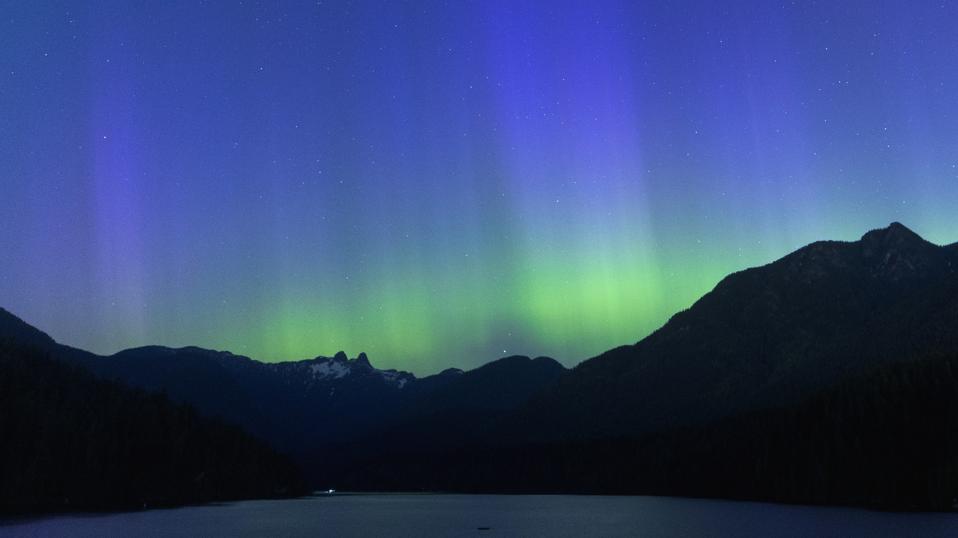Topline
Minor geomagnetic storms may bring the northern lights to many of the northernmost states Sunday night, according to the National Oceanic and Atmospheric Administration’s forecast.
Key Facts
NOAA projected the northern lights would have a Kp index of 5, a measure of strength on a scale of 0 to 9, indicating “brighter” lights that can be “quite pleasing to look at” from the right vantage point.
NOAA forecasts minor geomagnetic storms, measured at a level of G1 on a scale of G0 to G5, indicating possible disruptions to power grids and satellites and visible auroras at high latitudes, though similar recent geomagnetic storms have not had major impacts on infrastructure.
The northern lights will weaken Monday night, according to NOAA’s forecast, with only about six states projected to be within the aurora’s field of visibility.
Where Will The Northern Lights Be Visible?
Nearly all of Alaska and Canada has a high likelihood of viewing the aurora, according to NOAA’s forecast. States with a strong chance of seeing the northern lights include Washington, Montana, North Dakota and Minnesota. States along NOAA’s view line, the projected southern cutoff for seeing the aurora, include Idaho, South Dakota, Nebraska, Iowa, Wisconsin, Michigan, New York, New Hampshire, Vermont and Maine.
What’s The Best Way To See The Northern Lights?
The northern lights are most visible between 10 p.m. and 2 a.m. local time, according to NOAA. To get the best view of the aurora, NOAA recommends avoiding light pollution, traveling as far north as possible and finding a high vantage point.
What’s The Best Way To Photograph The Northern Lights?
Travel photographers told National Geographic the best way to capture the northern lights is by using a wide-angle lens and a tripod for stability. For iPhone users, the camera app’s night mode can help make the lights more visible. Other tactics that can help produce a better image include using an aperture value of 4.0 or lower and adding details to the image by capturing trees, bodies of water or mountains.
Key Background
The northern lights have been especially active over the past year because the sun is in its “solar maximum,” the period in its 11-year cycle during which it is most active. But this solar maximum has exceeded scientists’ expectations: NASA estimated northern lights activity in 2024 reached a 500-year peak, and scientists expect strong aurora activity to continue throughout this year before declining in the latter part of the decade. Some recent solar flares and geomagnetic storms have been especially notable, including a series of solar flares in May 2024 that triggered severe geomagnetic storms, producing northern lights displays in all 50 states.

